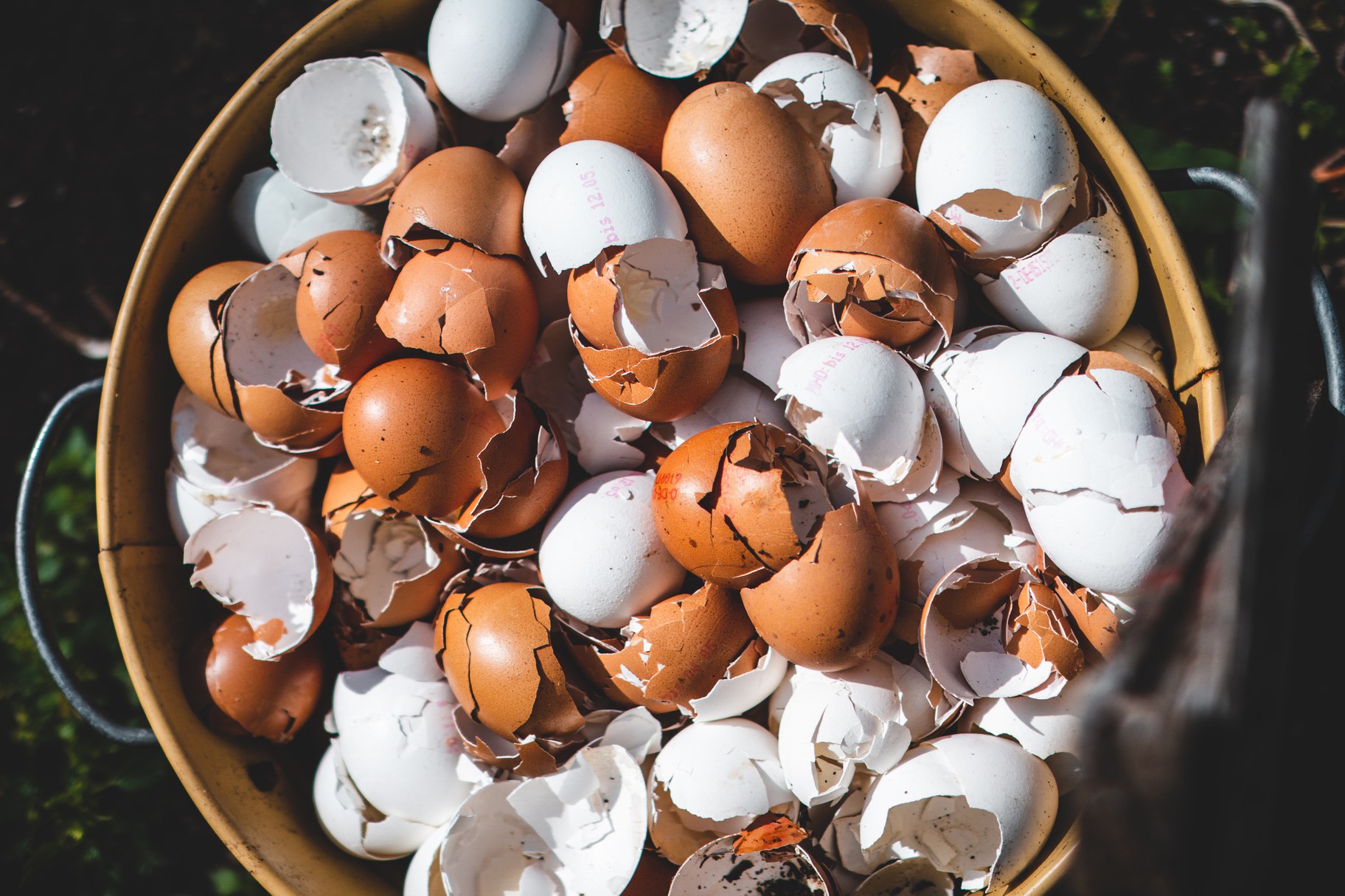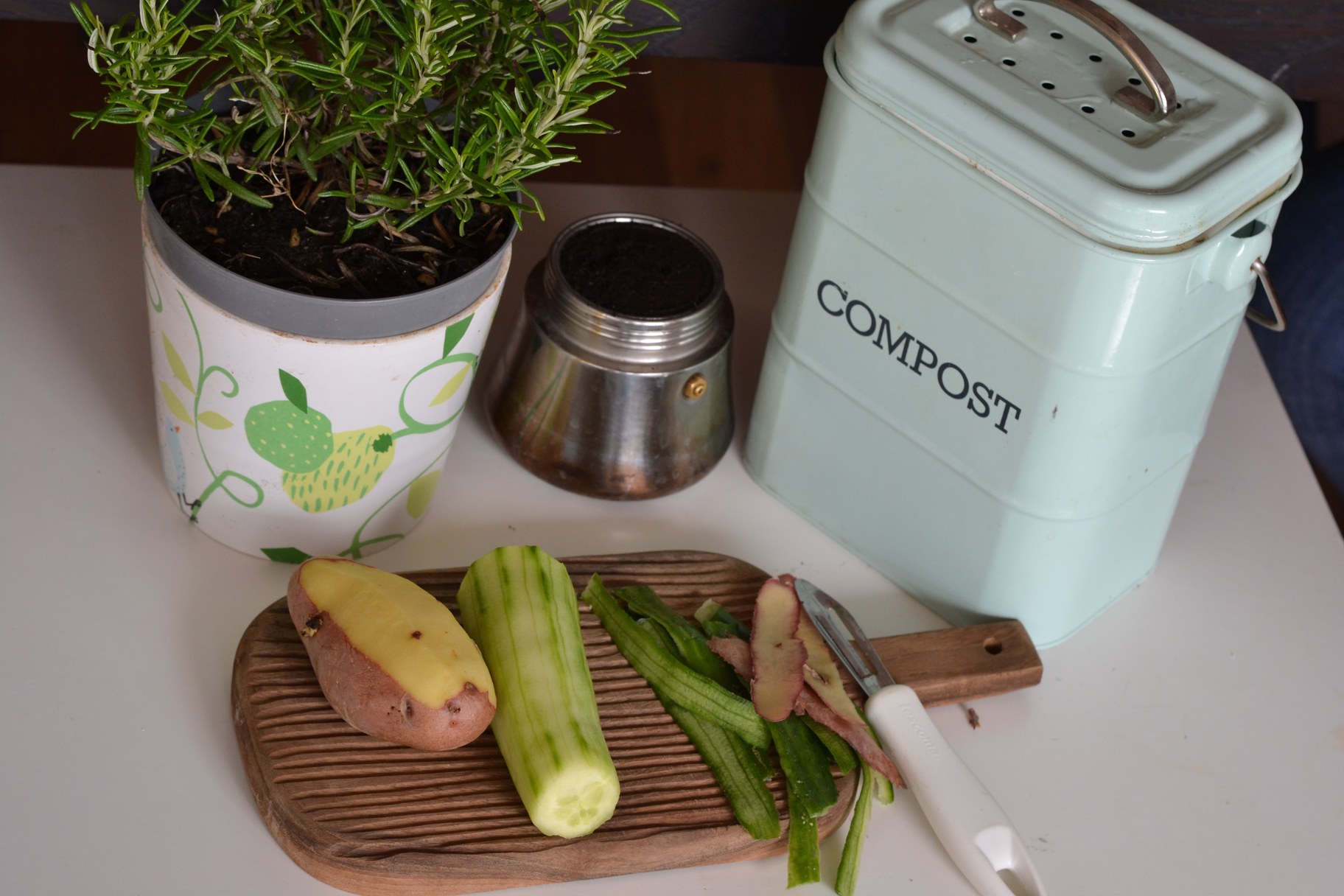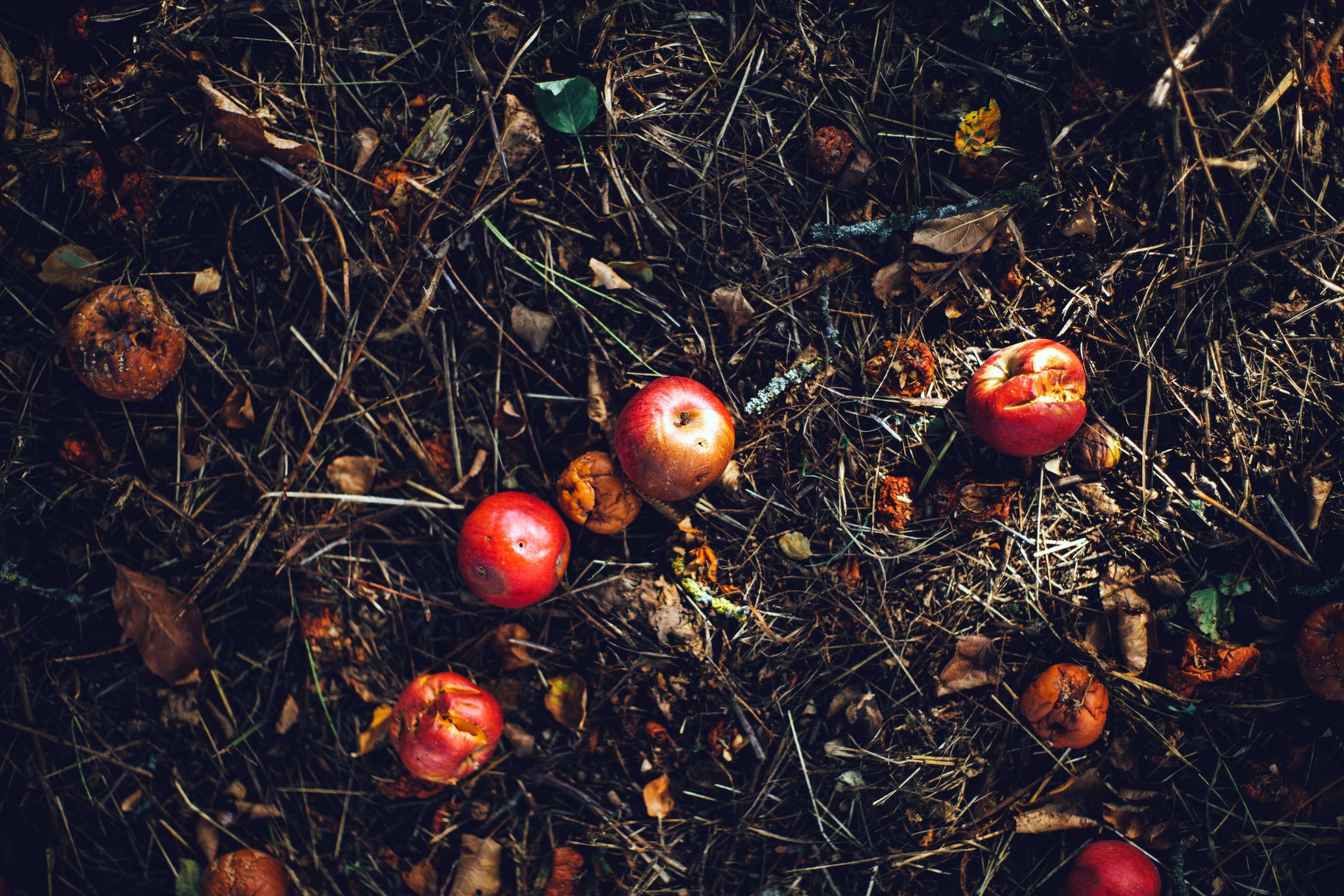This Earth Day, we invited Caleigh Wells, KCRW's Healthy Communities reporter, to sort out your burning questions about composting.
Need a countertop compost bin? You can get one for free! Follow this link.
Why bother composting?
Organic waste is the largest waste stream in California. When it's buried in landfills, it tends to decompose anaerobically and generate methane gas, a potent greenhouse gas. What is "organic waste"? It's a broad term that includes everything from food waste and flower cuttings to yard trimmings and uncoated, food-grade paper materials.

Egg shells, bread, grains, pasta, raw or cooked food scraps, dairy, meat and seafood (as long as it's not in the packaging) are allowed in the green bins. Photo by Jonathan Kemper/Unsplash.
What's the point of SB1383?
Senate Bill 1383 requires the state to reduce trash disposal by 75% by 2025. The goal is to…
- to reduce greenhouse gas emissions
- to keep landfills from filling up
- to support water retention and storm water-filtration
- to reduce erosion and runoff
- to reduce food waste
- to improve access to healthy food and healthy soil
- to create renewable energy from food scraps
When does SB1383 go into effect?
SB1383, which covers all residents and businesses in California, actually went into effect in January 2022. But no one was really ready for it. In fact, the majority of apartment buildings in the city of L.A. still don't have green bins, city officials tell KCRW.

Free countertop composting pails are available. Photo by Lenka Dzurandova/Unsplash.
What does SB1383 do?
That means you need to place your organic waste in the green bin, if you weren't already doing so. If you're serviced by L.A. Sanitation, you can get a free kitchen pail to store your food scraps, so you can dump them in your green bin once a week.
Who handles composting in the city of L.A.?
In the city of Los Angeles, the composting, recycling and trash hauling programs are all run by L.A. Sanitation and Environment. Other municipalities have their own programs.
SB1383 Timeline
January 1, 2022 — SB1383 takes effect
January 1, 2024 — Jurisdictions can impose penalties for not complying with the law
January 1, 2025 — Date by which the state must achieve a 75% reduction in organic waste disposal from its 2014 level. At least 20% of currently disposed edible food must be recovered for human consumption.

Organic matter such as vegetables and fruits (including the pits) can be composted in the green bins. Photo by Markus Spiske/Unsplash.
Composting Facts
ALLOWED IN THE GREEN BINS
Food Scraps
- Vegetables
- Fruit (pits too!)
- Dairy
- Bread, grains, pasta
- Egg shells
- Raw or cooked food scraps
- Bones and shells
- Meat and seafood - NOT in packaging
- Frozen food - NOT in packaging
- Canned or packaged food - NOT in packaging
- Very small amounts of grease and cooking oil wiped up with a napkin or paper towel (large amounts of cooking oil should NOT be placed in composting bins)
Uncoated Food-Soiled Paper
All coated food-grade paper materials (shiny on one side) are coated with plastic. These materials should NOT go in your green composting bin. The following uncoated paper materials can be composted:
- Pizza boxes
- Uncoated paper plates
- Paper napkins
- Paper towels
- Paper egg cartons
- Bamboo and wood chopsticks
- Cork (please place synthetic cork and plastic in the Landfill cart)
Yard Trimmings
- Flower cuttings
- Flower arrangements
- Garden trimmings
- Hay and straw
- House plants (shake off the dirt)
- Lawn clippings
- Leaves
- Prunings
- Shrubbery
- Untreated wood (4 feet or less in length and 6 inches in diameter)
- Wood chips
- Weeds
- Vines (NO poison oak)
- Palm leaves
- Cacti
- Clean pet bedding and shavings (made from paper or wood)
NOT ALLOWED IN THE GREEN BINS
-
Coated (shiny) food grade paper materials
-
Plastic
-
Biodegradable and "compostable" plastics
-
Ashes
-
Glass
-
Large tree trunks and stumps
-
Metal
-
Pet waste or manure
-
Poison oak
-
Rocks, concrete, sod or dirt
-
Treated or painted wood
